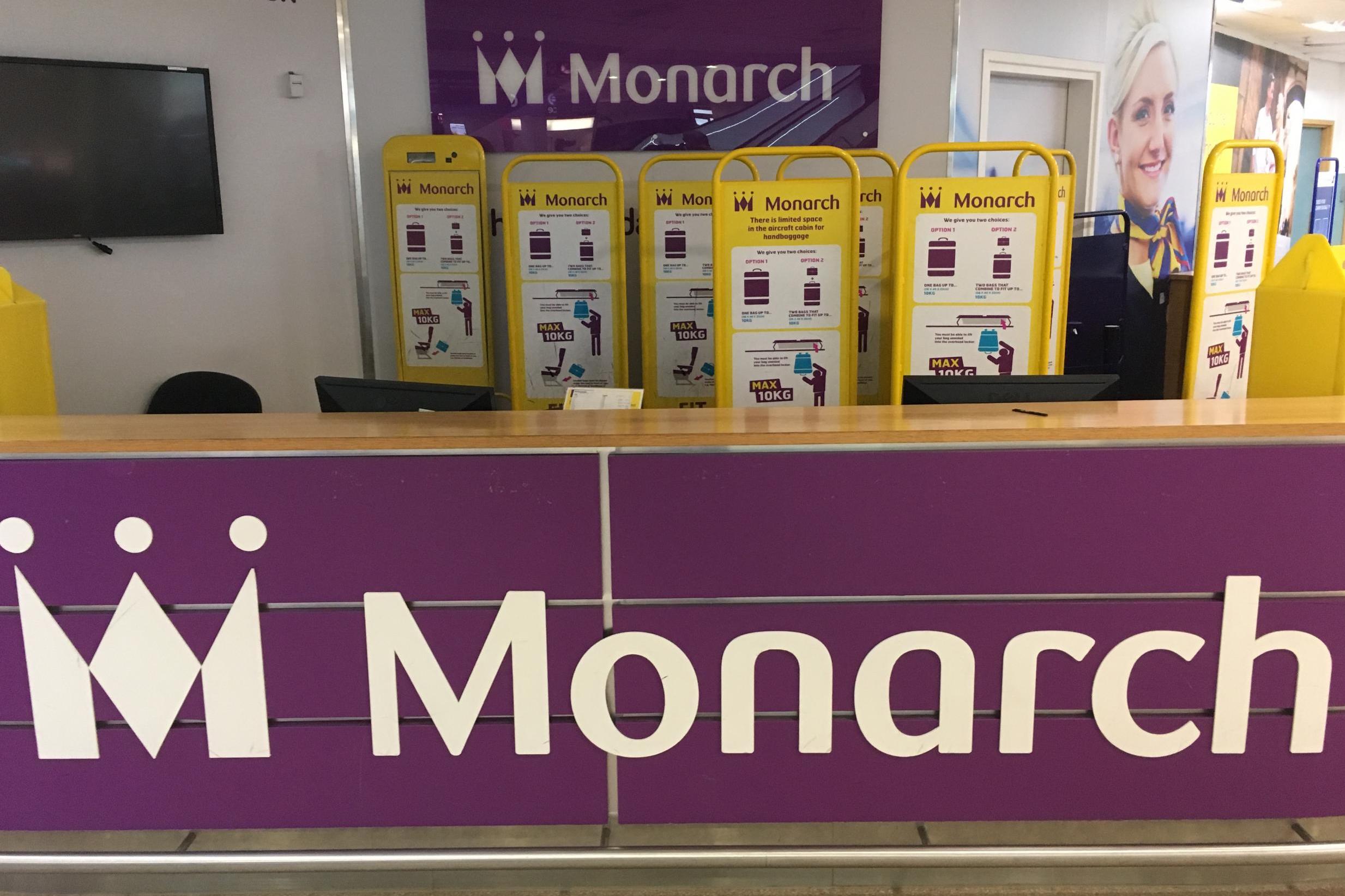Who should pay when an airline goes bust?
No airline failures have been remotely as stressful and expensive for UK passengers as the ash-cloud disruption of 2010 when Europe’s skies were closed for almost a week

Operation Monarch was a remarkable logistical achievement. After the airline collapsed in October 2017, with debts of almost half a billion pounds, the Civil Aviation Authority (CAA) mounted a rescue mission aimed at bringing every passenger back more or less at the expected time.
The CAA HQ in London’s Kingsway became the base of a “shadow airline”, mimicking the schedules of the defunct carrier.
During the airlift, I spent a day at Birmingham airport meeting returning passengers such as Sam Wood of Cumbria. “For the UK to step up and just repatriate everyone just like that, without us having to pay anything, is amazing,” he said.
Taxpayers may also be amazed that they ended up paying £40.5m to bring back Sam and 85,000 other Monarch passengers from the Mediterranean. Public funds paid £476 for every traveller who was brought back after their holiday (another £230 per person was subsequently reclaimed by the government).
That is why the Airline Insolvency Review was created shortly afterwards – to come up with a plan to avoid the government having to bail out passengers when airlines collapse in future. And this week, Peter Bucks, who chaired it, recommended a levy on passengers to fund a financial protection scheme.
As I said in my evidence to the review, yet another extra cost constitutes a legal sledgehammer to crack a commercial nut.
I have been knocking around long enough to have seen a fair number of airline failures. None have been remotely as stressful and expensive for UK passengers as the ash-cloud disruption of 2010 when Europe’s skies were closed for almost a week.
Mr Bucks’ proposed scheme would not cover these circumstances, unless an airline actually went bust during the shutdown. Nor, incidentally, would the tens of thousands of Jet Airways passengers left stranded in Delhi and Mumbai have benefited. The Indian airline has stopped flying but is still a functioning company, so bankruptcy protection does not apply.
The worst-case scenario envisaged by the review is the failure of a very large airline at a difficult time, typically in the summer peak. I don’t recall that having happened in the past few decades. Monarch went bust in October, and the biggest previous failure, of XL Airways, was in September 2008.
One peak-season collapse, in 2005, involved EUjet – a small airline. Afterwards, the CAA reported that passengers paid an average of £100 per person (let’s call it £150 in today’s prices) for flights and ground transfers in order to return from their holiday. That looks better value than the £706 per person that the Monarch rescue involved.
But if I am wrong and a big airline does go bust one August, then another of Mr Bucks’ recommendations can come into play: changing bankruptcy laws to keep the airline operating on life support for a couple of extra months until the end of the summer season so that holidaymakers are not left stranded, and allowing many more people to get the holiday they expected.
The costs for rescue flights after the Monarch collapse were so high because planes were “wet-leased” (ie with pilots and cabin crew) from a motley range of airlines: Airbus A320s from Qatar Airlines, an elderly A310 belonging to Air Transat of Canada, and a Boeing 747 in the colours of Wamos, a Spanish carrier that specialises in ad-hoc charters.
Far better to use the bankrupt airline’s planes, and unfortunate flight crew, who by definition had no other plans because they were expecting to fly all summer long.
Keeping an insolvent airline afloat would involve tens or hundreds of millions of pounds. Who picks up the bill? I suggest the beneficiaries.
Each passenger who avails of a flight on the “zombie airline” should have to pay an appropriate fare. Understandably, there would be outrage at the idea of coughing up again for the same trip. But travellers who have paid by credit card or have robust insurance would be able to claim the cost back.

The review acknowledges that financial protection for air travel is a right old mess. Many passengers are triple-covered for the same risk of failure, by their credit-card firm, travel insurance and Atol. A minority have no cover at all. But in any case “cover” can mean different things.
A family whose holiday is scuppered don’t want the money back, they want the actual trip. If a replacement is available, it is likely to cost much more when an airline has just stopped flying. Again, the zombie airline scenario can limit the damage.
The debate that the Airline Insolvency Review has sparked will, I hope, make travellers think more about the risks they are prepared to accept. But I fear that the Flight Protection Scheme could become yet one more element of confusion.
Join our commenting forum
Join thought-provoking conversations, follow other Independent readers and see their replies
Comments
Bookmark popover
Removed from bookmarks